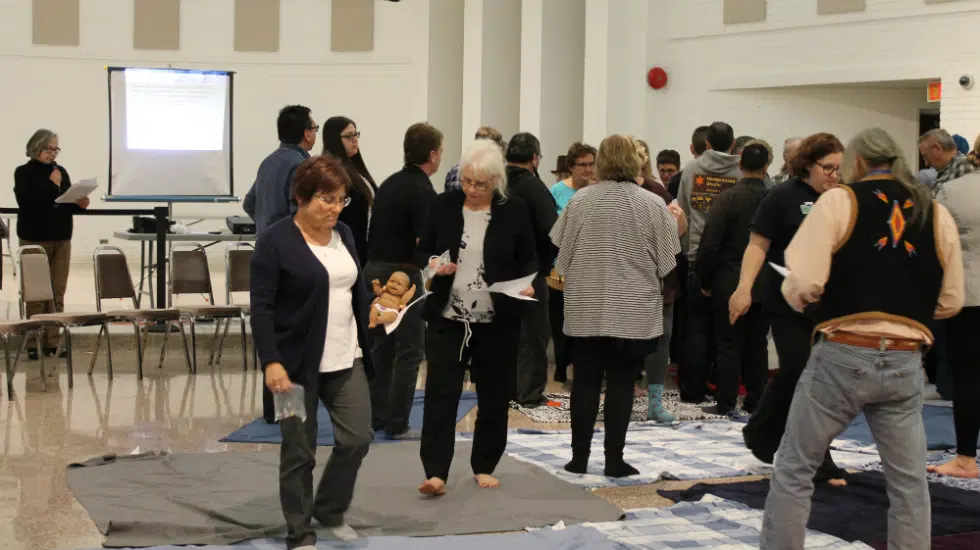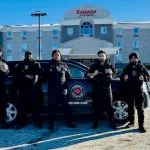
Blanket Exercise a time for learning, compassion and healing
Battlefords residents took a step back into Canada’s dark past when they came together to take part in a unique event at the Chapel Gallery — the KAIROS Blanket Exercise.
The project advances the cause of the Truth and Reconciliation Commission of Canada’s work to educate people about the painful legacy of the residential school system and to learn how policies in Canada’s history have forced Indigenous people to assimilate, which resulted in the theft of land, culture, language and Indigenous children.
Saskatchewan’s Treaty Commissioner Mary Culbertson said the exercise is “an opportunity to learn about shared history.”
Iris Acoose served as lead facilitator and travels around the province to host the event when requested. From Sakimay First Nation, she works for the Yorkton Tribal Council in the Indian Residential Schools Resolution Health Support Program.


